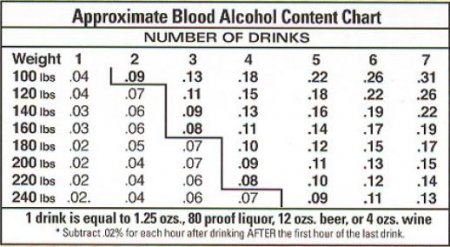The Michigan DUI Defense Law Firm
Dedicated to the Passionate, Zealous, and Tireless Defense of those Accused of Intoxicated or Impaired Driving in Michigan

Here is what you need to know about Alcohol and Drug Related Driving Allegations
Surprisingly, very few lawyers know the feeling of an outright acquittal (not guilty verdict) in their careers. The attorneys with LEWIS & DICKSTEIN, P.L.L.C. have won many not guilty verdicts for their clients charged with DUI and other alcohol-related offenses. Their successful record of trial victories, favorable plea bargains, and winning appeals causes Michigan’s state and local prosecutors to make very favorable settlement agreements to avoid a hearing at which the experienced DWI lawyers with LEWIS & DICKSTEIN, P.L.L.C., a Michigan DUI Defense law firm, might prevail.
LEWIS & DICKSTEIN, P.L.L.C.’s winning trial and plea bargain record have earned them an esteemed and highly respected reputation throughout Michigan’s legal community, with Michigan’s judges, federal judges, in the Court of Appeals and the Michigan Supreme Court. They are nationally recognized for their experience, industry recognition, and client recommendations. Prosecutors know that we use intelligent legal strategies and skills to develop and deliver solid defenses for each client’s drunk driving or drinking and driving cases.

Your Best Defense is With an Expert, Not a General Practice or Budget Lawyer
Don’t trust your Michigan DUI-OWI case to an amateur or a general practice lawyer; take advantage of the Michigan DUI defense law firm’s years of experience, trial work, and legal expertise with OWI laws. If you are looking for a DWI Attorney in MI, please contact the DUI defense law firm today at (248) 263-6800 for a free consultation, and we will call you. We approach every case with the care, dedication, and attention you expect and deserve.

Frequently Asked Questions of a Michigan DUI Defense Law Firm
1. Q: What do DUI, OWI, OWIN, OWID, DWI, and OWVI mean?
A: DUI (Driving Under the Influence of Alcohol or Drugs), OWI (Operating While Intoxicated), OWIN (Operating While Impaired by Narcotics), OWPD (Operating While Impaired by Drugs), DWI (Driving While Intoxicated), and OWVI (Operating While Visibly Impaired).
2. Q: Can a DUI/DWI attorney guarantee a particular result (like a charge reduction, reckless driving, careless driving, not guilty verdict, dismissal, etc.)?
A: No. The Michigan Rules of Professional Conduct prohibit an attorney from making promises or guarantees.

3. Q: Do you have to be “drunk” to be guilty of drunk driving?
A: No. Years ago, a drunk driving charge meant someone was “drunk” in the way all of us commonly understand the word – intoxicated. But today, intoxication as we know it is not required for one to be guilty of drunk driving. So the criminal laws against drinking and driving now mean operating a vehicle with considerably less alcohol in your system than what we customarily recognize as being enough to make a person drunk.
You may not think you are drunk. Those around you may not think you are drunk. Indeed, you may not even be considered drunk for every other situation except driving. But your condition may be enough for you to be charged with a DUI offense under the law’s current definition in Michigan. If you are falsely accused, a Michigan DUI defense law firm, like LEWIS & DICKSTEIN, P.L.LC. can help you.
4. Q: What kind of reason does a police officer need to stop me and investigate whether I am driving under the influence of drugs or alcohol?
A: The officer must have what is legally termed a “reasonable suspicion” that a crime is being committed. An officer can find that this low standard is met merely by observing something that appears out of the ordinary, and that might be a sign of a driver being under the influence. Dismissals on DUI cases often result when a Motion to Suppress or a Motion to Dismiss is filed because a traffic stop was illegal or violated a driver’s constitutional rights.
5. Q: What happens to me if I am pulled over by the police to investigate drunk driving?
A: If you are stopped, always be courteous with the officer even if you are 100% clean of any alcohol or drugs, and even if you are confident that your driving did not show anything unusual. Never argue with the officer. Law enforcement is a tough, often nerve-wracking job, and the “attitude” you show to the officer can make all the difference as to whether or not the encounter will be an unpleasant one for you. You are NOT legally required to participate in field sobriety tests (FST) or answer the officer’s questions. Just say, “I respectfully decline to answer your questions or participate in your field sobriety tests.” You must give your name accurately.
6. Q: What will happen if the officer who pulls me over suspects that I have been driving under the influence?
A: The officer will ask you to get out of the car and will likely ask you to perform a series of “field sobriety tests.” These are standard physical ability measures, and they include:
- Walk-and-Turn
- One-Leg-Stand
- HGN (Horizontal Gaze Nystagmus Test)
- Other tests are frequently given but are not “standardized” field sobriety tests.
In addition to these tests, some officers typically have a breath-testing device called a PBT or Preliminary Breath Test. This device does give a measurement of alcohol through breath analysis but is more for determining the presence of alcohol. The result of the PBT is not typically admissible in MI courts.
If you suffer from any health problems, physical limitations, or eye problems, you must disclose them to the officer if you perform the tests and have any trouble. IF the police accuse you of failing a sobriety test when you had a limitation contributing to your performance, our Michigan DUI defense law firm can help you.
More FAQ’s for a Michigan DUI Defense Law Firm
7. Q: What happens if the law enforcement officer believes that I have not performed the field sobriety tests satisfactorily?
A: At that point, the officer will tell you that you are under arrest for driving under the influence. You will be arrested, searched for weapons, placed in the back of the officer’s car, and taken to jail or the hospital for further tests. You will also be booked and held there until you post bail or are released on your own recognizance without bail at the jail. Once again, as upsetting and as stressful as being arrested is, it is essential that you continue to act courteously and cooperatively with the officer. Do not argue, threaten, or become belligerent in any way. This behavior will only make the experience even more unpleasant for you.
8. Q: What is a blood alcohol test?
A: This is a physical procedure to determine how much alcohol you have in your system. There are two ways of doing this test:
- Drawing a sample of blood;
- Obtaining a breath sample by having you blow into a machine called a Breathalyzer or Datamaster (This is different from the field sobriety breath device described above).
You choose which one of these tests you will take, but an OWI suspect will rarely be asked. The only time your ability to choose which test you take can legally be restricted is if you are in a locality that does not have access to one test or the other. The officer should tell you that the option as to which test you take is up to you. Officers often try to pressure, force, or browbeat a person into taking the blood test because this is the most effective procedure for the prosecution to use against a person in court. You do not have the right to refuse to take any test. If you refuse to take the test, your driver’s license is automatically suspended (an implied consent suspension). In your trial, the jury will be told that you refused to take the test, and the judge will instruct the jury that they can consider your refusal as evidence of your guilt.
9. Q: What are the penalties for driving while under the influence?
A: Drunken driving penalties have become very severe in the past few years in Michigan. For a first offense, the maximum jail sentence is 93 days. For a second offense within 7 years, the maximum possible sentence is 1 year, with a waivable mandatory minimum of 5 days jail. For a third or subsequent offense in a lifetime, the waivable mandatory minimum is 30 days in jail and a maximum possible sentence of 5 years in prison (Heidi’s Law).
In addition to all of the above penalties, the price of auto insurance increase drastically, the court imposes onerous probation conditions, you lose firearm rights, and there are excessive fines and costs. The Michigan DUI defense law firm, LEWIS & DICKSTEIN, P.L.L.C. can help you avoid some or all potential consequences of a conviction.

10. Q: What should I know to make an intelligent choice about which blood alcohol test I should take?
A: From the police and prosecution standpoint: As mentioned above, they will always prefer to have a more accurate sample of your actual blood to use against you as evidence in court. On the other hand, a breath test may show an inaccurately high reading against you if you take the breath test shortly after your last drink. This is because of the high alcohol content lingering in the mouth, esophagus, and upper digestive system. If you have used any breath spray, mouthwash, or even should you burp shortly before the breath test, the reading could be inaccurate. The blood test will also show the presence of drugs and alcohol. However, a breath test can only determine alcohol content and nothing about drugs.
11. Q: Legally, just what is “drunk driving?”
A: A drunk driving offense, sometimes called Driving While Intoxicated DWI or driving under the influence DUI, really has three general meanings:
Driving with an amount of alcohol in your system impairs your physical abilities.
Driving with a level of alcohol in your system amounts to a measurement of.08 of blood alcohol content. Absolutely no impairment of your physical abilities is necessary to be guilty of this offense. You can be the world’s most talented and safest driver, but if your blood alcohol content registers .08 or above, you are guilty of a criminal offense. ?
Driving with prescription drugs in your system or with a combination of prescription drugs and alcohol, no matter what the amounts of those substances might be, if your physical abilities have become impaired.
Drunk driving or driving under the influence includes driving with illegal drugs in your system. It does not matter if the drugs are legal or have a prescription to take the drugs. If you are caught operating a vehicle while impaired by drugs, you need a Michigan DUI defense law firm with vast experience and fearless, dedicated attorneys.
12. Q: What amount of alcohol do I need to drink to have a blood alcohol content of .08 or higher?
A: Each person’s blood alcohol content from drinking certain amounts of alcohol will vary, depending upon several factors. The main factor is your weight. To calculate your blood alcohol content based upon having average drinks such as a 12 oz. beer, a 4-ounce glass of wine, or a single mixed drink containing a one-ounce shot of 100 proof liquor, the following rule of thumb is an illustration but is not exact:
120 lbs.:
- One drink in one hour – .032
- Two drinks in one hour – .064
- Three drinks in one hour – .096
180 lbs.:
- One drink in one hour – .021
- Two drinks in one hour – .042
- Three drinks in one hour – .063
- Four drinks in one hour – .084
13. Q: How do I know if a MI Attorney is right for me?
A: Some lawyers have “it,” and some don’t. It is critical to meet a lawyer in person before making a selection. The only way to know if you have someone you can trust with your fate in their hands is to look into their eyes. When you look into his eyes, and he says he will do everything possible to fight for you, you will be able to tell whether it is a sales job or genuine. You can never fully tell over the telephone or through email. If you feel confident that they are a great criminal defense lawyer and will provide the best possible legal representation after meeting personally with an attorney, you have likely found the right person for you. When you meet a lawyer with a highly regarded Michigan DUI defense law firm, you can have some faith that you will be protected and defended in court.
14. Q: What are the counties with the most DUI cases or drunk driving charges?
A: Among the most common are Oakland County, Macomb County, Washtenaw County, Livingston County, and Wayne County (all in Southeastern, MI).
15. Q: Is it ethical for a MI DUI Attorney to say his law firm has the best attorneys, the top attorneys, the best lawyers, best criminal lawyers, best DUI attorneys, top DUI attorneys, etc.?
A: No, these claims are not ethical under the MRPC. An attorney may say they are one of the top DUI lawyers or one of the best DUI lawyers but claims to be the actual, best lawyer are not ethical. Another common claim is that a lawyer is a MI expert, OWI expert, or DUI expert. These claims run afoul of the MRPC as well. The lawyers with a top Michigan DUI defense law firm will be straight with you.

Michigan DUI Defense Law Firm
LEWIS & DICKSTEIN, P.L.L.C. is one of Michigan’s premier DUI defense law firms. We have a team of highly experienced, devoted defense attorneys who routinely win in court. We have an unparalleled track record of success because our lawyers will do whatever it takes to achieve the best possible results for our clients. When other lawyers claim to have what it takes, we demonstrate our proficiency in court through our results!
Call us today at (248) 263-6800 for a free consultation or complete a Request for Assistance Form. We will contact you promptly and find a way to help you.

